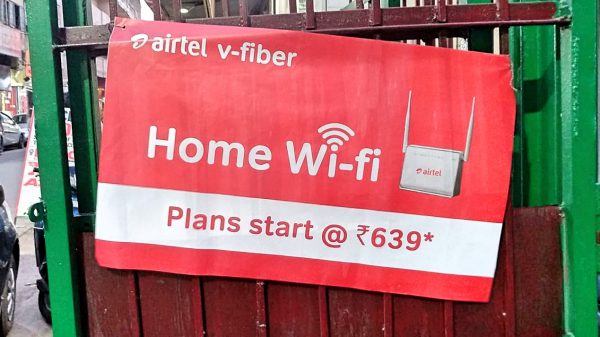Over the last year, Ezetap, a leading payments gateway provider, went from being a leading enterprise-facing payment company to now a retail-facing company. This shift in business and focus was triggered by the COVID-19 pandemic and ensuing nationwide lockdown last year, which has pushed over 1 million kirana stores to go digital. The company plans to expand its product offerings and market share in the retail payments space through partnerships with startups in the Kirana-Tech space.
“We had over 80% of payment volumes coming from enterprise and 20% from retail last year, to now 40% enterprise and 60% retail. By the end of this year, we will probably have 80% of volumes coming from retail and 20% from enterprise,” said Byas Nambisan, chief executive officer, Ezetap. “Today, kirana shop owners have a lot of choices in terms of solutions, so we are putting together a simple-to-implement, out-of-the-box experience—where all solutions are available on a single platform. This seems to be the need of the hour. Ezetap has also partnered with all major banks in India to give them the choice of their banking partners,” he told MediaNama.
Last week, Ezetap partnered with retail technology startup SnapBizz, to offer a single digital platform for mom and pop stores, kirana shop owners and other grocery retails grocers to manage their supply chain, inventory, billings and sales. “These solutions are backed by an advanced machine learning stack to create the largest standard taxonomy for a database of more than 500,000 SKUs [stock-keeping units] of loose and packaged items, which come pre-loaded for merchants, making them digital in less than 10 minutes and get connected digitally and financially to the entire FMCG and fintech ecosystem respectively,” the two companies said in a release.
Edited excerpts from MediaNama’s interview with Byas Nambisan, CEO, Ezetap
MediaNama: How has the pandemic changed digital payments adoption among small businesses?
Nambisan: Though he had envisioned this trend internally and were working with banks to offer more value-add services to merchants. But the pandemic accelerated this trend. Everybody was forced to do something because they had to reach out to customers who couldn’t come to their place, accept payment from people who didn’t have cash and so. So the banks came to us and we want to be able to offer the merchants more value added solutions, and you guys are have excellent quality and your tech is really good, and is proven at an enterprise grade level tech. We have gone from being largely enterprise oriented to largely retail.
MediaNama: Many payment companies are leveraging their platform and partnering with financial companies, be it banks, lenders, insurers or mutual fund companies, to become ‘neo-banks’. Are you looking at a similar play?
Nambisan: Right now we’re agnostic. We want to just offer services. It could be a third party service through our platform, or it could be our service. But when we think of when you go into something like credit, it’s much more than the software platform you need to have. There’s more acumen needed. And that’s a different kind of business, you need to determine who’s less risky?, and who’s more risky? It is a different business and we’ve chosen right now not to get into it.
MediaNama: What is Ezetaps’ strategy to capture the kirana store market?
Nambisan: If you went to a local kirana store which has a terminal, you would see that only one person operates it and the terminal is usually limited to payments acceptance. Due to the pandemic, Kiranas have become more more comfortable with digitisation and are looking for solutions for their inventory management and other business activities. So we are expanding our platform to offer integrated solutions to the merchant. We are partnering with other players to offer them a combined platform of services.
Nambisan: This is where our joint solution with SnapBizz comes in. Under this model, banks will offer the merchant a full set of payments solutions on an Android device, including a payment application, invoicing building, loyalty programs and others. As part of this strategic tie-up, we have integrated our My Khaata and My Rewards product to SnapBizzs’ platform, which will allow retail store owners to manage customer credit sales and rewards, for example.
MediaNama: We have seen hundreds of fake lending apps pop-up in the last year, taking advantage of unsuspecting customers by charging exorbitant interest rates and fees. Several of these apps were using white-label software and were able to integrate with leading payment gateway platforms. What are your thoughts on these app operators and merchant fraud?
Nambisan: We’re now dealing with also fake lenders as a separate category in terms of merchant frauds. Honestly, even if you do due diligence, it is possible for these fraudsters to check off all the boxes. And it is difficult and it requires several layers of checks. In our case, where we’ve seen frauds take place, it has required us to go back and look at how this merchant passed through our checks. You need it to go much deeper to actually root out and identify that fraud. I don’t imagine any companies where due diligence was just plain weak, but even with the strong due diligence, it still is an ongoing problem. The stronger your due diligence, the smarter somebody becomes in terms of how to game that process. So it’s a constantly evolving battle.
Nambisan: Data security and fraud are going to be big areas for investment. You need to get experienced people who know the kind of ways people operate and try to think ahead of that., We’ve had a very strong person now and we’re building up the team and strengthening it. But there is a bit of supply side issue on the investment side, in terms of hiring graduates, experienced professionals and employee training. You really need experienced people who’ve been through these problems and who can think and understand all the different ways frauds occur.
MediaNama: Has Ezetap encountered any large-scale merchant frauds in the last year?
Nambisan: We had a company that was well-connected, that provided all the documents to us and that they had a retail chain of merchants. So the team went through, checked them out and said, it seemed legit enough. We provided them with whole bunch of services, and we gave them card-accepting devices for them to collect payments. But it turns out they took these devices and went to other merchants to sold them again. They told the merchants that the government had come out with a policy where for every cash transaction, you get Rs 5 or 7 back. This is how they convinced other merchants to buy the device.
Nambisan: This company was able to sell our devices for Rs 15,000 to these merchants, when we sold it to them for Rs 3,000. The devices were owned by us and we had leased them out to this company who were supposed to deploy in their merchant outlets. At first glance, these transactions would look like regular transactions but then we started noticing patterns of repeated similar sized transactions.The first few merchants got the ‘cashback’ within a few minutes, but for other merchants the cashback was credited after 10-15 minutes. Eventually, this company started to stop settling the cashback amount with these merchants and the merchants were left without their money. This was a classic bait and switch. All of this happened within two months of on-boarding the company. I don’t think we could have stopped them, but I think we could have caught it earlier. We have to be just much more savvy on the transaction pattern and and stop things. send people out and check on it much faster.
MediaNama: How have you adjusted your growth and merchant strategy in light of the second wave of COVID-19 cases?
Nambisan: There are just so many variables, when a spike like this happens. It puts people and your employees at risk. And I don’t want my company being shut down because people are not doing well. I don’t know if it’s lucky or unlucky, its just it’s a matter of circumstance that we don’t have our own big on-boarding team. We largely work with a bank. and they would certainly be facing the same challenges as does our service team who are deployed on the ground.S o those are the things we’re mindful of the next two or three months. Right now we’re concerned about places where there are shutdowns. Even just movement of devices across the city is being stopped and the police are not clear on who’s allowed and not allowed to get letters of exemption. We are trying to work our way through these challenges.
Nambisan: We’re looking to offer our payments services across multiple platforms, by identifying who are the leaders in each space and what solutions they require. We’ll try to work with one or two players in each space, in each segment.
Also Read
- Payment pipeline issues block direct bank deposits to crypto-exchanges
- RBI updates Know-Your-Customer norms to push video-KYC, aid customer convenience
- NPCI joins hands with Delhi Police to trace and block fraudulent medical and oxygen suppliers: Report















